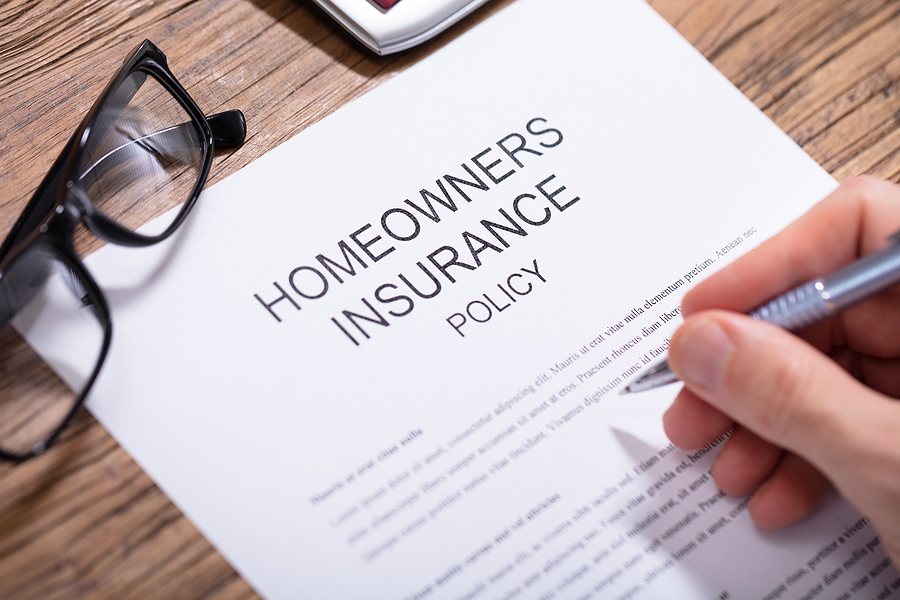Do Insurance Needs Change When the Mortgage Is Paid Off?

Paid off your mortgage? Congratulations! Your monthly mortgage payment probably included extra funds for property taxes and insurance. Of course, you’ll still have to pay taxes. But now that you don’t have a lender requiring insurance, can you drop your coverage and save some money?
Granted, the lender required insurance to protect its own interests, not yours. Depending upon the mortgage amount, interest rate, property taxes and insurance coverage, one-third of your monthly payment could have covered insurance. So you could save a lot by canceling the policy.
While you no longer have an obligation to purchase homeowners’ insurance, there are several good reasons to continue—or even potentially upgrade—your insurance coverage.
Why Review Your Homeowners Insurance After Paying Off Your Mortgage?
To start, it’s helpful to understand what homeowners’ insurance protects.
Your lender insisted on an insurance policy to protect their financial interest in your property. If your home was severely damaged by fire or some other natural disaster, they required insurance to ensure payment of the loan balance.
Homeowners insurance also protects you. If your home is damaged by fire, a natural disaster, or some other covered event, insurance would pay for the repairs and, in most cases, for alternative living arrangements, if needed. If a tree falls on your house and puts a hole in your roof, no worries.
Insurance also protects you against liability. If someone is injured in your home or on your property, or if your dog bites someone, insurance will protect you. If they sue you, your insurance policy has your back.
Finally, what if you’re the victim of robbery or vandalism? Again, your insurance policy will help mitigate your losses.
Depending upon your policy, you may be covered for other contingencies as well, such as the expenses you might incur because of identity theft or if your daughter’s drone
nosedives into a child on the playground. If your child’s laptop is stolen from their dorm room, that might be covered as well.
Risks of Cancelling Your Homeowners Insurance Policy
Without insurance, the cost and liability of anything that happens to your home falls squarely on the homeowner. The same applies to the liability if something happens to anyone on your property, even if it isn’t your fault.
That liability can extend to virtually any assets you have. If someone is injured in your home, even accidentally, you can be sued, and you could lose your savings and investments. Homeowners’ insurance not only protects your home and belongings, but also your other assets.
Also, as mentioned above, your policy covers the contents of your home, not just the building itself. That protection also extends to personal property in your vehicle(s). If anything is stolen, or damaged by, say, a burst water pipe, insurance will cover that as well.
But the protection against liability is the biggest protection your policy offers. If someone slips on your sidewalk because you haven’t shoveled the snow yet, they can easily wind up with a five- or six-figure medical bill. When they do, they’ll hold you liable if you don’t have insurance.
Steps to Take with Your Home Insurance After Paying Off Your Mortgage
Once you’ve sent in that last mortgage payment, you’ll want to contact your insurance company or broker/agent. Make sure they update the policy to remove the lender’s name. (If you make a claim, you want the check to go to you, not your former lender.) You also want all bills and policy notifications to come to you.
You should also discuss your coverage with your agent or broker. Your lender may have required certain coverages or limits; your current needs may be different. This is an excellent time to review your policy and make sure that it matches your present circumstances. In parts of the country where construction costs are skyrocketing, it’s especially important that your insurance will cover the costs to rebuild or repair your home if necessary.
Finally, look at your limits. You might not need to carry the limits your lender might have required. Your insurance agent can help you adjust your liability and coverage to match your current needs. As a result, you might save money on your policy. You may also want to work with an insurance broker who can get pricing from multiple insurers. If your policy needs have changed, the list of potential insurers may change as well.
You’ll probably have to set up a new payment process, such as automatic deductions from your bank or credit union account, since your lender is no longer paying the insurance premiums on your behalf.
Take this opportunity also to double-check that property tax bills are coming to you. While your lender will probably notify the applicable taxing authority (and you may already be receiving property tax bills), make sure one doesn’t fall through the cracks. Paying property taxes late, or forgetting to pay them entirely, can be expensive and even cost you your home.
Key Takeaways for Post-Mortgage Home Insurance Needs
Paying off your mortgage is a huge step. For most people, their mortgage is the largest debt they have.
Ask your insurance agent/broker to walk you through the process and help you tie up any loose ends. After that, enjoy life without that mortgage payment.
If you’re not sure if you have the right coverage, request a no-obligation policy review or contact us at 877-576-5200.

